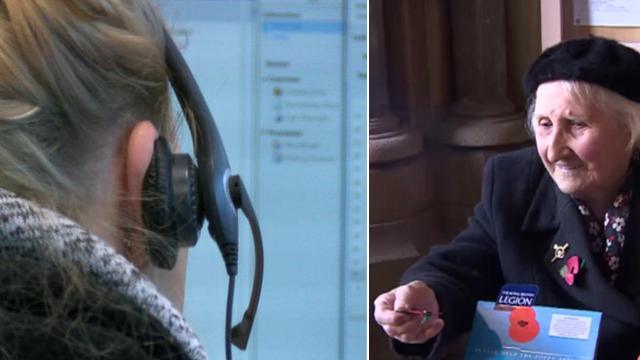Charity fundraising tactics 'a scandal', says senior MP
- Published
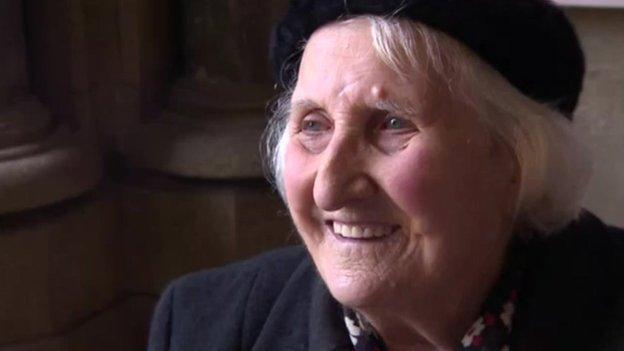
Poppy seller Olive Cooke killed herself after reportedly being overwhelmed by requests from charities
The fundraising tactics used by some charities have been compared to "a boiler house operation" by a senior MP.
Bernard Jenkin said reports vulnerable people had been pressured for donations and had their details sold between charities were a "scandal".
He spoke as the heads of four major UK charities appeared before MPs.
Mark Goldring, from Oxfam, said there had been "too little supervision" of agency fundraisers, but the majority of collectors operated within the rules.
The heads of Oxfam, the NSPCC, Save the Children and the RSPCA were summoned to appear before the Commons Public Administration Committee following a series of reports of bad practice.
'Slipshod'
The methods used by fundraisers came under scrutiny earlier this year following the death of 92-year-old poppy collector Olive Cooke, who had reportedly been overwhelmed by requests from charities.
The Daily Mail has also reported that vulnerable people have been repeatedly contacted for donations despite being on an official "opt-out" database, external, and that one pensioner, Samuel Rae, lost £35,000 after his information was sold by charities and ended up with scammers.
Conservative committee chairman Mr Jenkin told the charity chiefs it appeared "the temptation to raise money made you slipshod in your governance procedures or wilfully blind to what was going on".
Charities' activities included "using commercial companies whose activities have been so shameful that charities have immediately suspended operations, severed contracts, ceased relationships, because of what has been uncovered", he said.
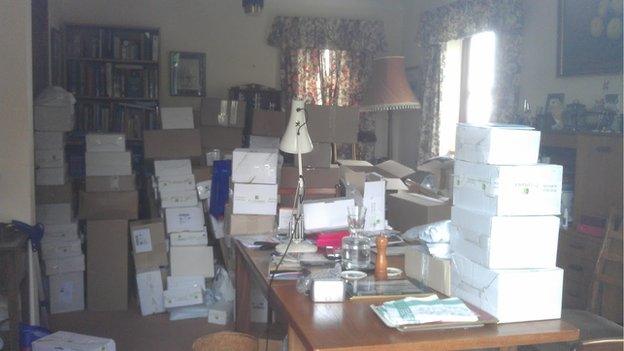
Samuel Rae's son said letters from charities filled many boxes in his father's house
He also accused charities of "instructing all fundraisers that when someone says they're too poor to give at the moment, that's just another excuse".
Staff were "instructing callers to ask for money at least three times in a call in a very aggressive way".
He added: "It seems more like a boiler house operation than something which reflects the values of the charities you serve."
'Not enforced'
Peter Wanless, from the NSPCC, said such practices were "utterly unacceptable", and he was "pleased that the gross excesses have been exposed and action has been taken to do something about them".
Justin Forsyth, from Save the Children, said: "The standards we had may have been strong, but they weren't enforced in practice."
RSPCA vice-chairman David Canavan told the committee that only one fundraising call in 1,000 and one mailshot in 100,000 resulted in a complaint.
The Information Commissioner is investigating the claims concerning Mr Rae, while the government has said it is changing legislation to help protect vulnerable people from aggressive fundraising.
The incoming chairman of the Fundraising Standards Board, Andrew Hind, told MPs that self-regulation was not working, and instead the sector should have an independent fundraising standards committee - with a majority of lay members - able to enforce a mandatory code of practice.
- Published1 September 2015
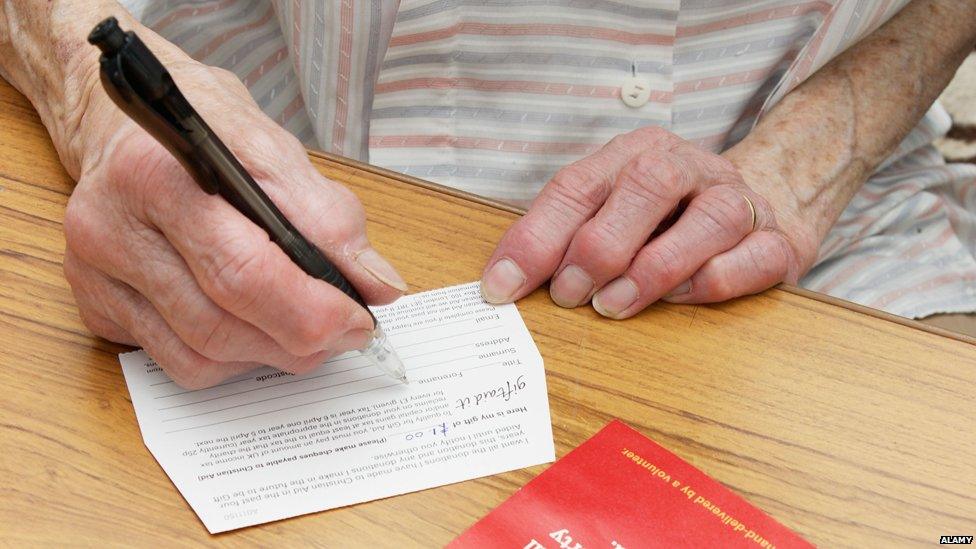
- Published1 September 2015

- Published16 July 2015
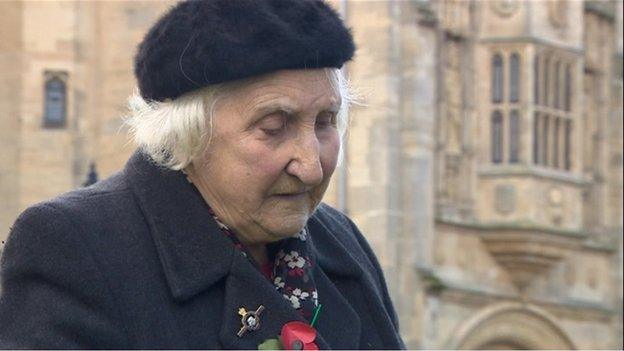
- Published11 July 2015
